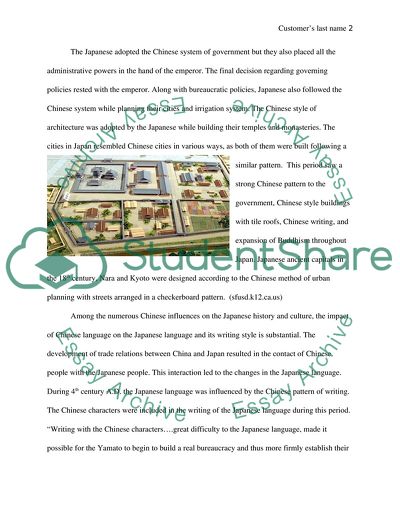Japanese History Research Paper Example | Topics and Well Written Essays - 500 words. Retrieved from https://studentshare.org/miscellaneous/1564510-japanese-history
Japanese History Research Paper Example | Topics and Well Written Essays - 500 Words. https://studentshare.org/miscellaneous/1564510-japanese-history.


